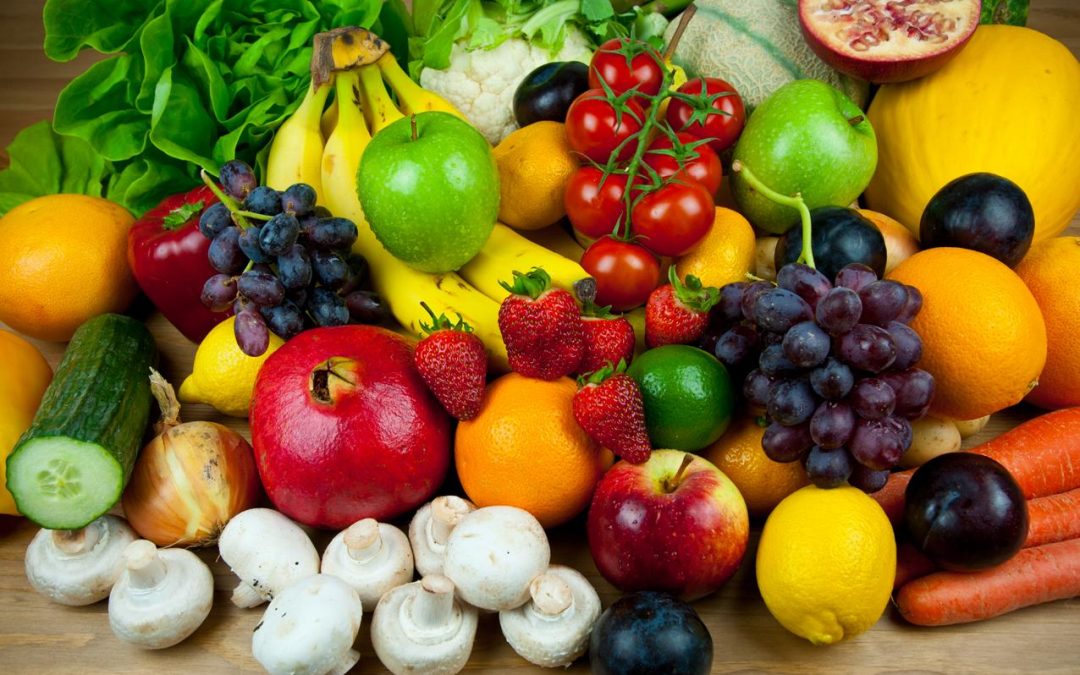
Why Are Fruits and Vegetables Important?
Note: Because of enormous health problems related to unhealthy eating habits we have included this common sense advice.
Fruits and vegetables provide health benefits and are important for the prevention of illnesses. The U.S. Department of Agriculture recommends filling half of your plate with fruits and vegetables at each meal. Fruits and vegetables contain a variety of nutrients including vitamins, minerals and antioxidants. Eating the recommended amount of fruits and vegetables each day can reduce the risk of chronic diseases.
Nutrients in Vegetables
Vegetables are rich in vitamin A, vitamin C, folate, fiber and potassium. Folate helps the body form red blood cells. It is especially important for women of childbearing age to consume folate-rich foods such as bell peppers, tomatoes and spinach to prevent neural-tube defects in babies. Vitamin A-rich foods such as sweet potatoes, carrots and butternut squash help keep your skin and eyes healthy and protect against infections. The USDA recommends eating 2 1/2 cups of vegetables per day.
Nutrients in Fruit
The USDA recommends consuming 2 cups of fruit per day. The healthiest choices are fresh fruits or frozen without added sweeteners. Fruit is naturally low in fat, sodium and calories, and rich in potassium, fiber, vitamin C and folate. Some high-potassium fruits include peaches, cantaloupe, honeydew, oranges and bananas. Fiber in fruit helps to protect against heart disease and lower cholesterol. Vitamin C in foods like citrus and strawberries helps with wound healing and keeps gums and teeth healthy…
Read the whole article by Amanda Hernandez in SFGATE.
Another article why vegetables and fruits are important can be read here:
Vegetables and Fruits by Harvard School of Public Health